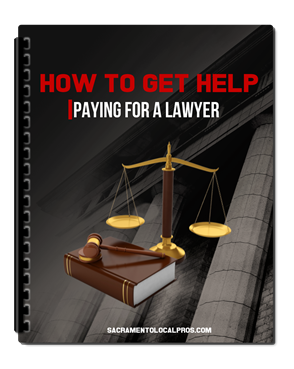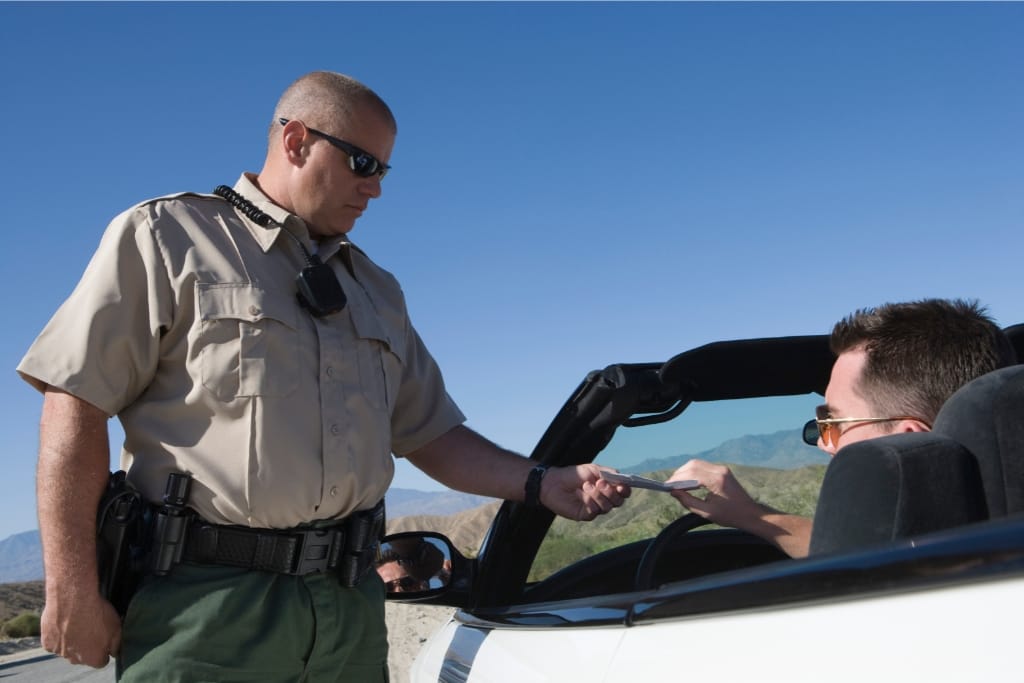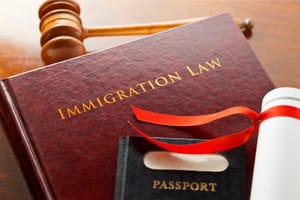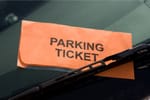Navigating the legal jungle of a speeding ticket can be overwhelming. But don't fret, we're here to help.
This article presents ten crucial tips to assist you in fighting a speeding ticket effectively in court.
Learn from experts in the field, arm yourself with knowledge, and prepare for what lies ahead.
Understanding your rights and the legal process can sometimes make the difference between a dismissed case and a hefty fine.
1)) Understand The Charges Against You
The first step in fighting a speeding ticket is to understand the charges against you.
This includes knowing the specific speed limit of the area where you were ticketed, what speed you were allegedly driving, and any other relevant information.
It's also important to know the exact statute or law that you are accused of violating.
This will help you build a solid defense and increase your chances of success in court.
Tips To Aid In Understanding The Charges Against You:
- Research The Specific Law: Take the time to thoroughly research the specific law or statute you are being accused of violating. Understanding the exact wording and stipulations of the law can provide valuable insight into potential defenses.
- Consult With A Legal Professional: If possible, consult with a legal professional. They will have a deeper understanding of the law and can explain the charges in a comprehensible manner.
- Request A Copy Of The Police Report: Getting a copy of the police report can provide detailed information about the incident. It will list the officer's account of the situation, which can be crucial when formulating your defense.
Comprehending the charges brought against you is a primary step in challenging a speeding ticket.
By researching the specific law, consulting with a legal professional, and obtaining a copy of the police report, you can equip yourself with the knowledge necessary to build a robust defense.
This understanding could potentially be the difference between a conviction and a dismissal of charges.
2)) Gather Evidence
You should gather as much evidence as possible to support your case.
This might include photographs of the area where you were stopped, witness statements, and any other supporting documentation.
It's also a good idea to document your own recollection of events by writing down what happened as soon as possible after the incident.
Tips To Aid In Gathering Evidence:
- Photograph the Scene: As soon as possible following the incident, return to the scene and take clear, well-angled photographs of the road, traffic signs, and any other relevant details. These can be instrumental in highlighting inaccuracies in the officer's report or demonstrating factors that may have affected your speed.
- Collect Witness Statements: If there were any witnesses present at the time of the incident, reach out to them for statements. Witnesses might include passengers in your vehicle, other drivers, or pedestrians who can corroborate your account.
- Keep a Detailed Record: Write down your own account as soon as you can, while the memories are still fresh. Include as many details as possible – the time of day, weather conditions, road conditions, traffic, and any other factors that might have an impact on your case.
Collecting robust evidence is a crucial part of contesting a speeding ticket.
By photographing the scene, acquiring witness statements, and meticulously documenting your own account, you can strengthen your defense considerably.
This comprehensive evidence can provide a more accurate representation of the incident, potentially leading to a favorable outcome in court.
3)) Hire An Attorney
If you're serious about fighting your ticket, consider hiring an attorney who specializes in traffic law. An experienced attorney can review your case and provide valuable advice on how to proceed. They may also be able to identify legal defenses that you were not aware of and negotiate with the prosecutor to reduce the charges against you.
Tips To Assist In Hiring An Attorney:
- Look for Specialization: Ensure that the attorney you choose specializes in traffic law. This will ensure they have the necessary experience and understanding of traffic court procedures and defenses.
- Consider Experience and Track Record: Check their past record in handling similar cases. An attorney with a high success rate of getting charges reduced or dismissed can be a valuable asset.
- Check Reviews and References: Before hiring, look into reviews and references. Speak with past clients, if possible, to get a sense of their satisfaction with the attorney's service and outcome of their cases.
Hiring a specialized attorney can significantly increase your chances of successfully contesting a speeding ticket.
An experienced traffic law attorney can not only provide expert advice and potential defenses but also negotiate effectively on your behalf.
By ensuring their specialty, investigating their track record, and checking reviews and references, you can make an informed decision, ultimately improving your prospects in traffic court.
4)) Be Honest And Respectful
When you appear in court, always be honest and respectful to the judge and prosecutor.
Lying or being disrespectful can harm your case and may even lead to additional charges. Instead, be polite and articulate your defense in a clear and concise manner.
Tips To Foster Honesty and Respect In Court:
- Maintain Polite Demeanor: Always address the judge and prosecutor respectfully. Use formal addresses like 'Your Honor' or 'Sir/Madam' as appropriate.
- Present Facts Truthfully: Do not try to twist the facts or conceal the truth. Honesty is appreciated in court and can help your credibility.
- Remain Calm and Composed: Even if the proceedings are not going in your favor, keep your emotions in check. Avoid argumentative behavior and maintain a composed demeanor.
Being honest and respectful in court is imperative when contesting a speeding ticket.
By maintaining decorum, presenting facts truthfully, and remaining calm under pressure, you enhance your credibility and demonstrate respect for the court's proceedings.
This approach can positively influence the judge's perception of you, potentially impacting the final outcome of your case.
5)) Check For Errors Or Discrepancies
Review the ticket carefully for inaccuracies or discrepancies. The ticket should include information such as your name, address, and the make and model of your vehicle.
Double-check this information for accuracy. If you find any errors, it may be possible to have the ticket dismissed.
Tips To Aid In Checking For Errors Or Discrepancies:
- Review Personal Information: Ensure your personal details like name, address, driver's license number, and vehicle registration number are accurately noted on the ticket. Even a minor mistake can be grounds for dismissal.
- Check Incident Details: Review the details of the alleged violation, such as the location, time, date, and the specific traffic law you are accused of violating. Mistakes in these key details can weaken the prosecution's case.
- Examine Officer's Notes: If possible, take a look at the officer's notes for any inconsistencies or omissions. Any discrepancy between the officer's recollection and what is written on the ticket could be used in your favor.
Diligently reviewing your ticket for errors or discrepancies is a valuable step in challenging a speeding ticket.
Any inaccuracies in your personal information, details of the incident, or the officer's notes can be leveraged in your defense.
By catching these errors, you may potentially weaken the prosecution's case or even get the ticket dismissed altogether.
6)) Know Your Rights
You have a right to contest a ticket in court and are innocent until proven guilty.
Make sure you understand your rights and the legal process. You can research the laws in your state or consult an attorney to learn more about your legal rights and how to protect them.
Tips To Assure You Know Your Rights:
- Research Traffic Laws: Understand the traffic laws specific to your state or country. This will equip you with the necessary knowledge to understand the charges against you and potential defenses.
- Understand Court Procedures: Familiarize yourself with the court procedures for contesting a ticket. Knowing what to expect can help reduce anxiety and enable you to better prepare your case.
- Consult An Attorney: If you're uncertain about your rights or the legal process, consult with a traffic law attorney. They can provide guidance and assure you understand your rights fully before you appear in court.
Understanding your rights is a crucial aspect when contesting a speeding ticket.
Educating yourself about the traffic laws, familiarizing with court procedures, and seeking legal advice can empower you to navigate the legal process more effectively.
By knowing your rights, you position yourself to make informed decisions and advocate for yourself effectively in court.
7)) Be Prepared To Negotiate
It's possible that the prosecutor may offer a plea deal to reduce the charges against you. Consider the offer carefully and discuss it with your attorney before making a decision. In some cases, accepting a plea deal may be in your best interest.
Tips To Prepare For Negotiation:
- Understand the Offer: Make sure you comprehend the implications of the plea deal. Review the terms in detail, considering the potential fines, driving record implications, and insurance impact.
- Seek Legal Advice: If you have an attorney, consult them before making any decisions. They can provide insights into the pros and cons based on your specific situation and the terms of the offered deal.
- Be Ready to Counteroffer: If you believe the deal is not fair or in your best interest, be prepared to propose a counteroffer. This requires a clear understanding of your case and the possible outcomes if you take the issue to trial.
In essence, being prepared to negotiate can be a strategic move when handling a speeding ticket case.
Fully understanding the plea deal's implications, seeking professional legal advice, and readiness to counteroffer are crucial.
A thoughtful negotiation strategy can potentially lead to a more favorable outcome, reducing fines or impact on your driving record.
8)) Dress Appropriately
When you appear in court, dress appropriately and professionally. This demonstrates respect for the court and shows that you take the matter seriously.
Avoid wearing casual or revealing clothing, and be sure to present yourself in a tidy and respectful manner.
Tips To Dress Appropriately For Court:
- Opt For Business Attire: Business or business casual attire is generally suitable for a court appearance. Men can wear a suit or a nice pair of trousers with a collared shirt, while women can opt for a business-style dress, skirt or trousers with a blouse.
- Present Yourself Neatly: Make sure your clothes are clean, ironed, and well-fitted. Personal hygiene is also important; ensure your hair is neatly styled, and facial hair (if any) is well-groomed.
- Avoid Casual or Revealing Clothes: It's important to avoid attire that might be considered disrespectful in a formal setting. This includes casual wear like jeans, t-shirts, shorts, or revealing clothing. Accessories should also be minimal and unobtrusive.
Dressing appropriately for court plays a significant role in your case's representation.
The right attire not only conveys your respect for the court but also signals your seriousness about the matter at hand.
By opting for business or business casual attire, presenting yourself neatly, and avoiding casual or revealing clothes, you set a positive tone for your court appearance.
9)) Plan Ahead
Make sure you plan ahead for your court appearance. Arrive early to allow for unexpected delays and traffic.
Bring all necessary documentation with you, such as your driver's license, registration, and insurance papers.
Being organized and prepared can help you feel more confident and increase your chances of success.
Tips To Effectively Plan Ahead For Court:
- Arrive Early: Make sure you schedule your day so that you arrive at the court well in advance. This will account for any unexpected delays, such as traffic or parking difficulties, and ensure you have ample time to get oriented and prepare mentally.
- Bring Necessary Documents: Organize and bring all required documents, which may include your driver's license, registration, insurance papers, and any evidence or documentation pertinent to your case.
- Familiarize Yourself With The Setting: Prior to your court date, try to familiarize yourself with the court's layout and procedures. Knowing where to go and what to expect can help reduce anxiety and enable you to feel more confident.
Planning ahead for your court appearance is an essential step towards a successful outcome.
By arriving early, bringing all necessary documents, and familiarizing yourself with the court setting, you can reduce anxiety and maximize confidence.
This organized and prepared approach demonstrates your commitment to the process and can contribute positively to the impression you make on the court.
10)) Be Patient
It's important to be patient throughout the process. Fighting a speeding ticket in court can be a lengthy and stressful process.
The legal system moves slowly and that it may take some time before you receive a resolution.
Stay positive and focused, and trust that you have done everything in your power to fight your case.
Tips To Practice Patience Through The Legal Process:
- Stay Calm: Understand that legal procedures often take time, and it’s crucial to stay composed. Practicing mindfulness techniques like deep breathing and meditation can help maintain calmness.
- Keep Positive: Maintain a positive attitude throughout the process. Remember why you're fighting the ticket and stay focused on your goal.
- Trust The Process: Have faith in the legal system and in your preparations. Sometimes things might seem slow, but remember that each step is crucial to ensuring a fair outcome.
Patience is an asset when navigating the legal system.
The process may be lengthy and taxing, but staying calm, maintaining a positive outlook, and placing trust in the process can make the journey manageable.
Each step, however slow it may seem, is bringing you closer to a fair resolution of your case.
Conclusion
The process of contesting a speeding ticket can undoubtedly be complex, time-consuming, and stressful.
However, it need not be an insurmountable challenge. By adhering to these guidelines—from preparing a solid defense and dressing appropriately to planning ahead and exercising patience—you can navigate the legal system effectively.
Understanding the procedures and maintaining a professional, respectful demeanor can significantly impact your experience and the outcome of your case.
Although the process may be lengthy, your diligent preparation and patience can guide you to a successful resolution.
Related Articles and Guides
- How To Fight A Speeding Ticket
- 10 FAQs About How To Fight A Speeding Ticket In Court
- 10 Tips For Going To Court For A Speeding Ticket
- 10 Speeding Ticket Hacks That Could Save You Time And Money
Are You Looking For The Best Traffic Ticket Lawyers In Sacramento Ca? Click Here To Get In Touch With A Traffic Ticket Attorney Today!
Download Our Free E-book!








